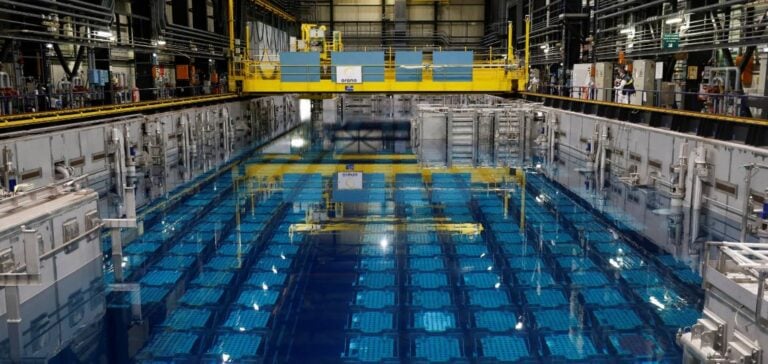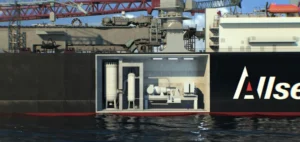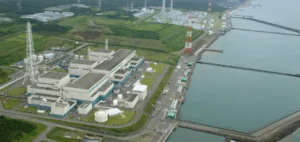The Cour des comptes has issued a warning regarding the lack of a long-term solution for storing approximately 280,000 m³ of so-called long-lived low-level radioactive waste (FAVL), in a report published on June 4. This type of waste, which may remain radioactive for up to 100,000 years, is not currently managed by any existing storage facility.
A volume without definitive storage options
The waste in question stems from various historical industrial processes, including radium-bearing residues from rare earth mineral treatment, graphite used in first-generation nuclear reactors, and bituminised waste, which consists of radioactive effluents embedded in bitumen. To date, around 210,000 m³ of this waste is stored at secured sites operated by industrial actors such as the Commissariat à l’énergie atomique et aux énergies alternatives (CEA), Électricité de France (EDF), Orano, Framatome, Solvay, and the Agence nationale pour la gestion des déchets radioactifs (Andra).
The Cour des comptes notes that no current infrastructure is suited to accommodate this waste in the long term. It cannot be stored at surface level due to its longevity, yet its low radioactivity does not justify deep geological disposal like the one planned under the Cigéo project.
Soulaines site delayed by several decades
A shallow-depth storage project is being considered in Soulaines, located in the Aube département, but it is unlikely to be operational before the mid-2040s. This would represent a delay of over 30 years compared to the legislator’s original target date set in 2013. Furthermore, the site would only be able to accommodate a portion of the waste — notably the radium-bearing materials — leaving other categories without a defined outlet.
This delay increases the risk of overcapacity at current storage sites. According to the report, it could hinder dismantling operations for certain nuclear facilities due to a lack of available space for removed materials.
Ongoing delays and fiscal uncertainty surrounding Cigéo project
The Cour also highlights persistent challenges facing the Cigéo project, which aims to bury high-level radioactive waste 500 metres underground in the Meuse region. The initiative is now more than 20 years behind its original launch schedule. The report mentions increasing risks of blockages tied to expropriation procedures and initial development works, as well as major tensions regarding local taxation.
The financial returns expected from the project, seen as crucial for gaining support from local authorities, have yet to be determined. A decree is anticipated prior to the public inquiry scheduled for 2026. The Cour recommends urgently defining this fiscal framework and initiating, as early as 2025, the creation of dedicated funds financed by waste producers to support the studies needed for alternative storage solutions.






















